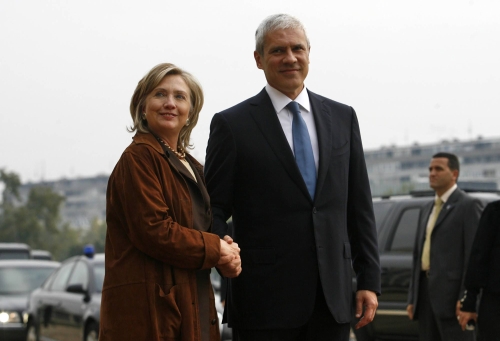Permit me to present an excerpt from a 1981 East German publication for agitators. It was meant to give small-time propagandists who were supposed to work the barracks, the factory floor, and the like, examples of successful preaching to the imprisoned.
One choise piece provides an example of the limits of truthiness:Italy: What are the Causes of Terrorist Actions?
The new year began in Italy as the old one had ended: with terrorist actions. On 31 December, Police General Enrico Calvaligi was shot at the front door of his home. In January, the kidnapping of Judge Giovanni D’Urso occupied public attention until he was a released. These were only the latest in a long chain of events that began on 12 December 1969 with a bomb at the Agricultural Bank in Milan and reached its high point so far on Bologna on 2 August 1980 when 85 people were killed and more than 200 injured. What are the causes of these terrorist actions, which have affected Italy in particular, but also other capitalist countries?
Bourgeois and social reformist ideologists and politicians generally, reject the claim that the roots are in the capitalist system. Explaining the causes, however, requires considering the whole interrelated complex of objective and subjective of economic, social, political, and ideological factors, and they develop from the nature of the capitalist system!
In the socio-economic area, terrorism is bred complex of factors of new and old contradictions, in the backwardness of the south, and particularly the sharpness of the economic crisis and its results. The inflation rate in 1980 was above 20 percent throughout the year, at the top of the leading capitalist states, and unemployment according to official figures remained at about 1.7 million, about 50 percent of whom are young people. In a situation of general uncertainty, extremist and anarchist ideas spread among dissatisfied and politically immature young people who want revenge on the bourgeois state. In this milieu, adventurers find an audience for their calls for “direct action” and terrorist acts, which they claim are the quickest path to social change. The crisis is also hard on the middle class, and produces not only anti-monopolistic views, but also radical views to the right and the “left.” Demagogic appeals to national sentiments, or to economic and social difficulties and social problems, allow neo-fascist and “leftist” extremist groups to win supporters in various social levels — from the poorest farmers in the south to some tradesmen, businessmen, civil servants, and students.The two were, of course, kidnapped by the Red Brigade, well known for their “right wing views” to the East German listener of this bromide, and who were trained, plosletyzed to, and funded by the intelligence agencies of the Warsaw pact,making the entire thing a “Daddy drinks because you cry” type of argument.















